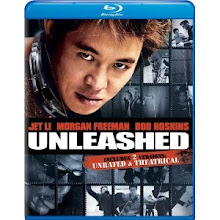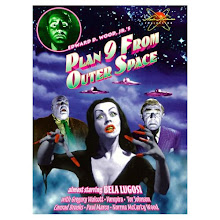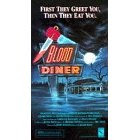by Jason Pyles
There are some things you only have to do once:
a.) touch fire
b.) drink V8
c.) eat Grape Nuts
d.) go to Disneyworld
e.) watch “Rashomon”
I enjoyed “Rashomon” the first two times I saw it, but the third time wasn’t a charm for me. To be fair, I had to break it up and watch it in four sittings because of late-night weariness; I didn’t want to sleep through any of it. I still took notes as carefully as I ever have while watching a movie. But I’m probably OK with not watching “Rashomon” again for at least several years.
At the risk of opening an old can of worms, I invite somebody — anybody — to explain to me exactly why “Rashomon” is widely considered one of Kurosawa’s masterpieces. I mean, it’s good — maybe even very good, but I wouldn’t call it a masterpiece. That classification is so controversial and subjective among those in this group, you can just explain why it’s so revered and forget the term masterpiece.
Maybe the point is that we’re all liars (at some point and to some degree), and we can’t even be honest with ourselves. The latter half of the preceding sentence is a recurring theme in “Rashomon.” And really, it’s profoundly true. For the most part, we really can’t be honest with ourselves, so that’s a great assertion for the film to make, because it’s an accurate observation about one peculiar aspect of the human condition.
Also prevalent is the priest’s inner crisis about losing faith in humanity. This is a popular, almost cliché sentiment that we hear weekly, if not daily. People say things like, “Well, with the way the world is today, you never can tell. Nothing surprises me anymore.” And yet, we are surrounded by imperfect, dagger-stealing but ultimately good-hearted baby-adopting people like the wood cutter. A minority of the population is sociopathic, so their colorfulness gets all the attention, eclipsing the goodness of the majority. Think about it, our two presidential candidates have, no doubt, accomplished a number of great things, but if there were 10 proud moments in their careers, we hear about the one where they stumbled, the one where they voted the wrong way and supported the wrong bill at the wrong time.
And I suppose “Rashomon” does justice to the mystery that is perception. We all have a slightly different perspective from one another. Looking into the subjectivity of individual perception is an interest topic for the cinema to explore. You know how it is … ask 10 witnesses about what happened in a traffic accident and get 10 varying versions. There’s an assistant prosecuting attorney in Ohio County, W.Va. named Joseph Barki. When he gives his closing arguments to the jury, he’ll often suggest that the slight variation in the testimonies of his witnesses is actually much more credible than if all the witnesses’ stories were identical. He tells them, we’d have to be suspicious if all their stories matched perfectly. And I think, for the most part, that’s true, because it just doesn’t happen.
There are more observations about human tendencies illustrated in “Rashomon,” and perhaps the effective demonstration of all these phenomena is what earns the film its high praise. Having acknowledged such noteworthy portrayals in the three preceding paragraphs, I will proceed with my critique.
It is brilliant for Kurosawa to clearly differentiate the flashback, testimonial scenes from the present baffled discussion through the use of the torrential downpour at the Rashomon temple. Nice. But how can such filmmaking insight yield and crumble to the over-dramatic, confused anguish of the men having the discussion? “I just don’t understand. I just don’t understand,” the wood cutter laments. And then there’s the priest whose faith in humanity hangs by a thread. They delude themselves into near hysteria right before our eyes with each time we come back to them. But then, I guess people actually do that in real life. I would have just preferred if the men discussed the event because it was interesting, and not because it was ruining their entire lives.
Next, let’s look at each of the accounts briefly:
Tajomaru, the notorious bandit: He saw the girl. He tricked the husband and bound him. He rapes the girl, then he tries to win her heart, asking her to follow him. She says one of the men must die. The bandit cuts the husband free. They fight. The bandit kills the man. The girl runs away.
The woman: The woman’s story starts with the bound husband. She says she was raped. The bandit departs. The husband is angry at her. She has a dagger pointed toward her husband. She faints, and then I’ve never been clear on what she suggested happened next? Did she faint and fall into her husband’s chest, killing him with the knife? That’s what I understood her to say. She claims she also tried to kill herself.
The dead man speaks through a medium: He said he was suffering in a dark hell because after the bandit raped his wife and won her heart, she wanted to go with Tajomaru under one condition: The bandit had to kill her husband. The bandit saw she was a psycho and asked the husband if he wanted her killed. She runs away and the bandit chases her. He returns hours later and sets the man free. The bandit departs. The husband kills himself.
The wood cutter’s account: He saw the husband tied up. He saw the rape then the bandit begging and pleading with her to marry him — or else. She wanted the two men to fight it out to decide which one she would follow. The husband didn’t want her any longer and told his wife to kill herself. The bandit was walking away when the two men got into an argument. The woman turned completely nuts and ridiculed both men, instigating their duel. The bandit kills the man.
Now, if you look at their accounts, while trying to account for their motivation to lie or tell the truth, it really doesn’t make sense. The bandit admitted to raping the woman and killing the man. What else did he have to lie about? Why would the woman admit to accidentally stabbing her husband? The dead man/medium story is not believable for more than the obvious reasons: The bandit doesn’t scratch himself as he is wont to do in the other accounts, and that idiot bandit would never be responsible enough to return after several hours to cut the man free.
Interestingly, one could pick out a story where each person’s actions didn’t add up, but the woman’s actions don’t make sense in any of their stories. Maybe she was hooking up with the wood cutter? But seriously, we never learn what really happened. The point is, the actual truth is probably somewhere intermingled between all the accounts. That’s probably what Kurosawa was trying to show us. Even so, we can’t make sense out of the characters’ motivations.
And, there again, maybe Kurosawa was depicting that we can’t explain or account for human motivation. No, we can’t understand what people do and why they do it. Maybe “Rashomon” is a masterpiece after all … and when comparing it to a paltry modern-day variation of the same idea, like “Vantage Point,” it definitely qualifies as such.
Wednesday, October 8, 2008
Subscribe to:
Post Comments (Atom)






























































No comments:
Post a Comment